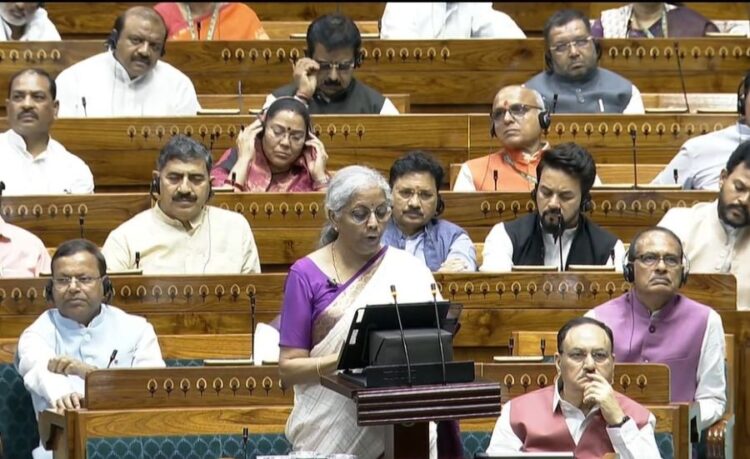Finance Minister Nirmala Sitharaman stated the 2024 Union Budget will pave the way for future fiscal plans as she presented her seventh budget statement in Parliament. She outlined nine priority areas that will guide both the current and future governments.
These priorities include: enhancing productivity and resilience in agriculture, creating employment and skill development opportunities, improving human resources, promoting social justice, advancing manufacturing and services, driving urban development, ensuring energy security, investing in infrastructure, fostering innovation, and supporting research and development, along with next-gen reforms.
“The Budget sets a foundation for sustained efforts across these nine priority areas to create ample opportunities for everyone. Future budgets will build upon the priorities outlined in the 2024 Budget,” Sitharaman remarked.
The 2024 Budget will particularly concentrate on four core areas: employment, skilling, Micro, Small, and Medium Enterprises (MSMEs), and the middle class. The government plans to implement schemes benefiting 4.1 crore youth over the next five years, with an allocation of ₹2 lakh crore.
A provision of ₹1.48 lakh crore has been earmarked for education, employment, and skill development.
“In this budget, we specifically target employment, skilling, MSMEs, and the middle class. I am pleased to announce a package of five schemes aimed at creating opportunities for 4.1 crore youth over five years with a total outlay of ₹2 lakh crore,” she said.
Focus on Agriculture
An allocation of ₹1.52 lakh crore has been made for agriculture and allied sectors. A National Cooperation Policy will be developed to accelerate rural economic growth and job creation.
The government will promote natural farming among one crore farmers, supported by certification and branding. Additionally, the implementation of Digital Public Infrastructure in agriculture will be facilitated in collaboration with State governments. Jan Samarth-based Kisan credit cards will be rolled out in five States.
The Digital Public Infrastructure application will include a survey of kharif crops across 400 districts.
Furthermore, 10,000 bio-input resource centres will be established to support farmers, and over 100 high-yielding, climate-resilient varieties of 32 field and horticulture crops will be made available for cultivation.

















